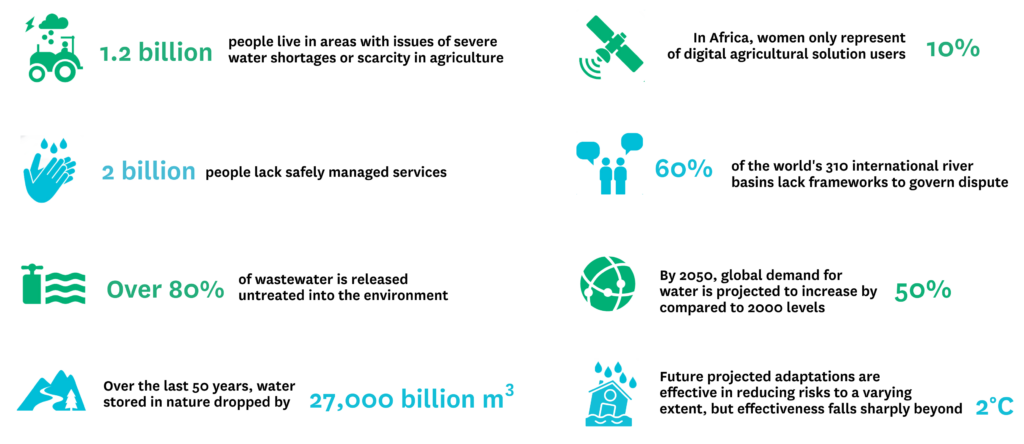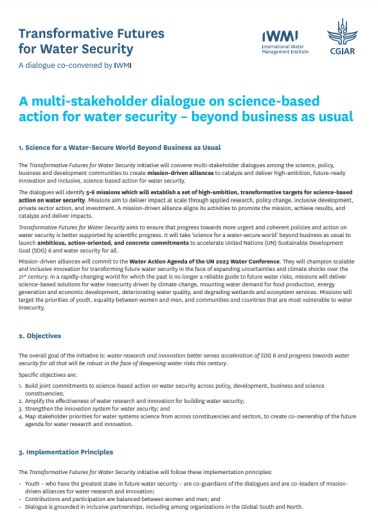Water security is deeply intertwined with climate security. As the Intergovernmental Panel on Climate Change reported in its 6th Assessment Report, water risks are intensifying worldwide as climate change tightens its grip and shocks the planet’s hydrological systems. What is coming are more droughts, floods, and extreme rainfall, more variable and less reliable tropical monsoons, melting glaciers, and sea-level rise. In a new era of water risks, governments, businesses, and water users across sectors — as well as the global water science community — are not doing nearly enough to address these pressing challenges, adapt and build water security for the benefit of future generations.
Without immediate and bold action, water security is set to worsen.
Water’s importance in achieving sustainable development, building climate resilience, and strengthening livelihood opportunities compels the international community to prioritize the sustainable management of water urgently. However, poor water governance, underfunded water services and infrastructure, a fragmented science community and evidence base, and the slow pace of change and innovation in water management make achieving water security an elusive goal in many countries.

Last year, water-related disasters dominated our news cycles. Regions of Asia and sub-Saharan Africa were impacted by some of the worst flood or drought events they had seen in years, with some countries affected by both.
Around the globe, 2.3 billion people live in water-stressed countries. If no efforts are made to keep global warming below 2C above pre-industrial levels, the number of people affected by water stress could double by 2050. Research shows that climate change is driving the acceleration of weather, climate, and water extremes, which have caused a daily average of US$ 202 million in economic losses over the past fifty years.
Our planet’s freshwater supplies have never been equally distributed, but water pollution, over-exploitation, conflict, waste and a lack of infrastructure have widened imbalances at local, regional and global levels. Because water flows through all sectors of the economy — industry, sanitation, agriculture, and energy — economic losses are mounting as exposure increases. Populations of the Global South, who are least responsible for the climate crisis, are also the most vulnerable to its impacts.
With extreme weather events magnifying human pressure on ecosystems and climate change causing disturbances in water cycles, smart water solutions have also become crucial to protecting local environments and communities. Water managers used to rely on historical data and knowledge of water flows and risks from the past to manage water resources, but the past is no longer a reliable guide for planning the future.
Read the following opinion pieces to learn more about the world’s most pressing water issues.
To strengthen the response to these pressing challenges, the International Water Management Institute (IWMI) launched the Transformative Futures for Water Security (TFWS) initiative. Over the past year, and through a unique process that included eight virtual regional dialogues and a global conference held this February in Cape Town, the initiative convened representatives from the private sector, water user and advocacy groups, research institutes, political entities, and youth networks to identify critical gaps and opportunities in water research, policy and action. Click on the ‘Process’ tab to learn more about the TFWS initiative.



